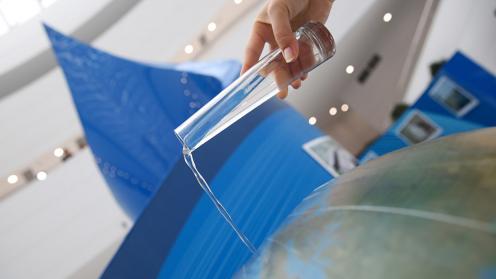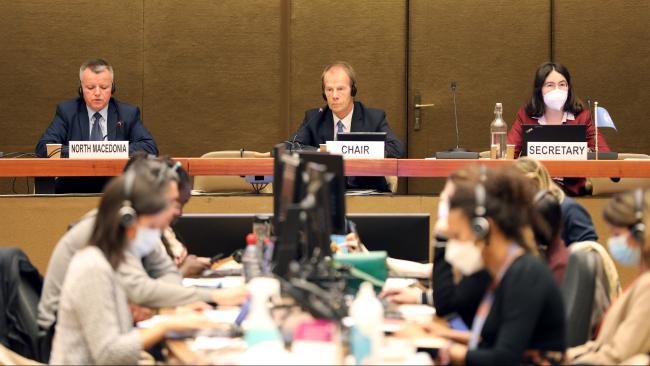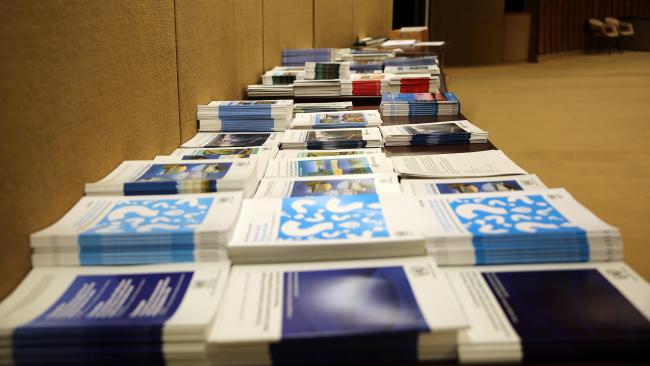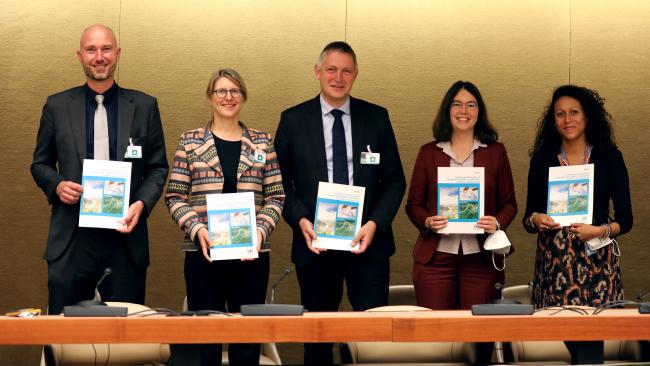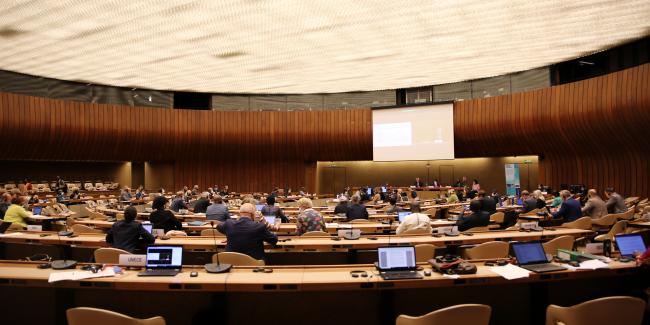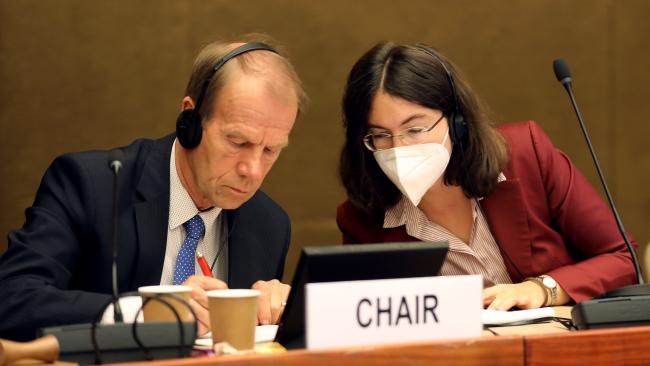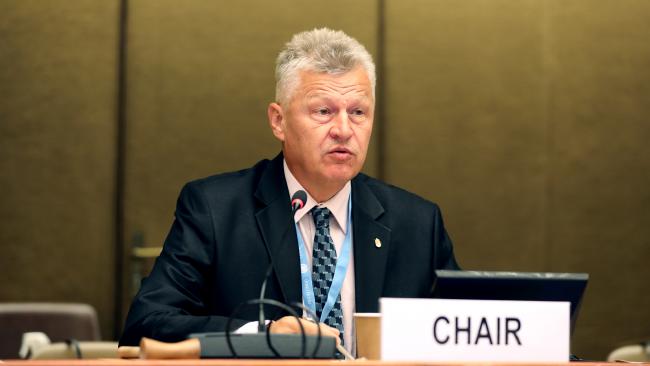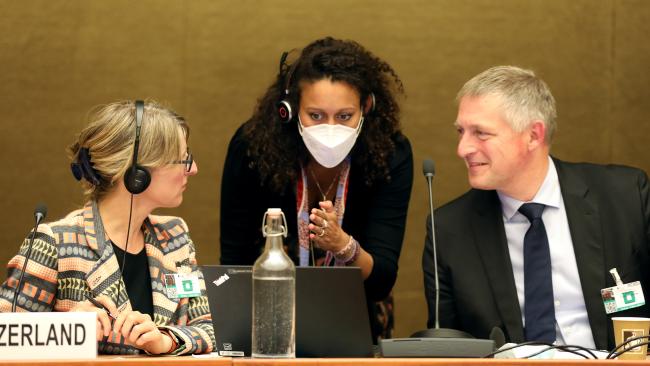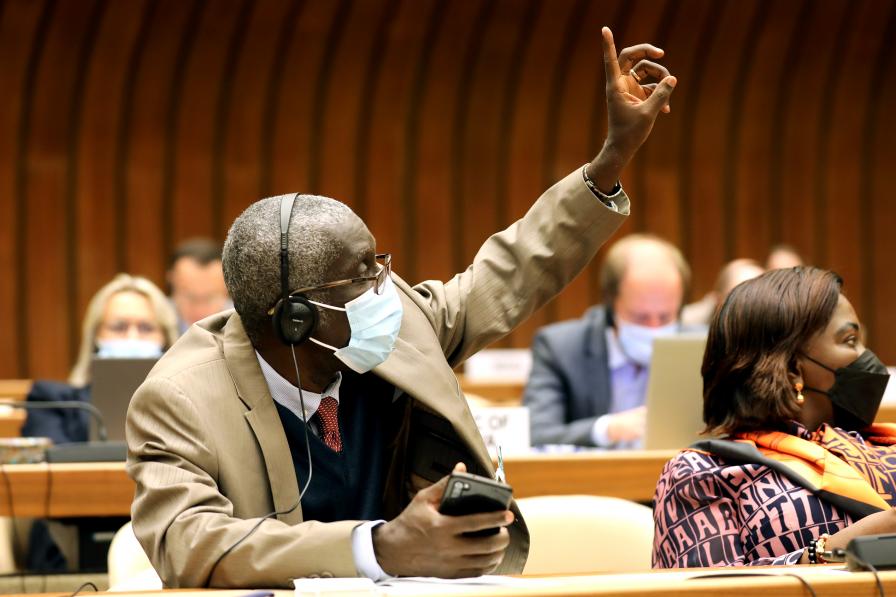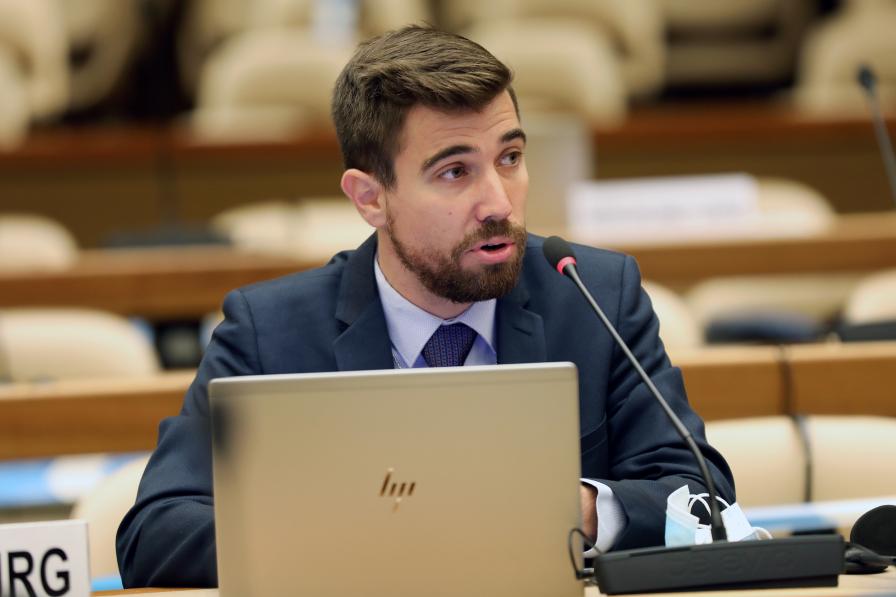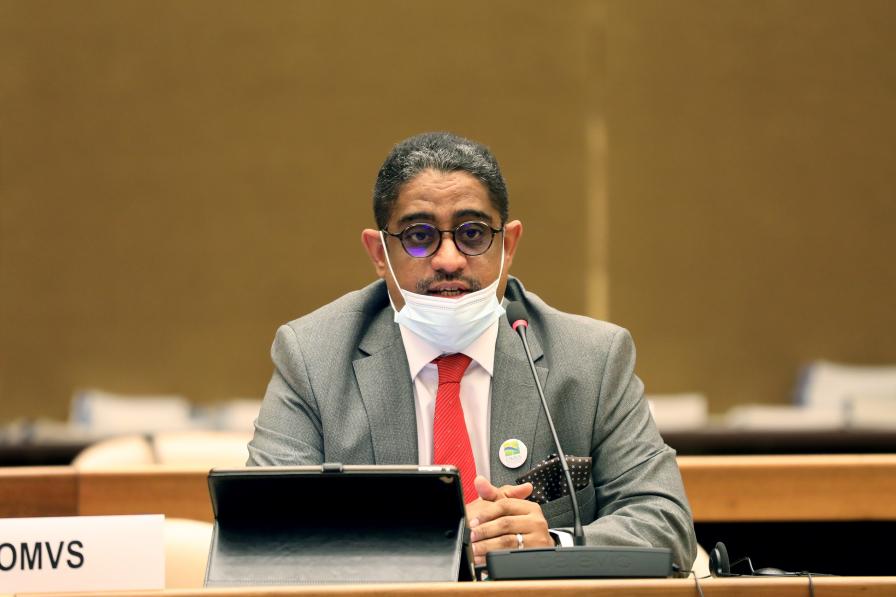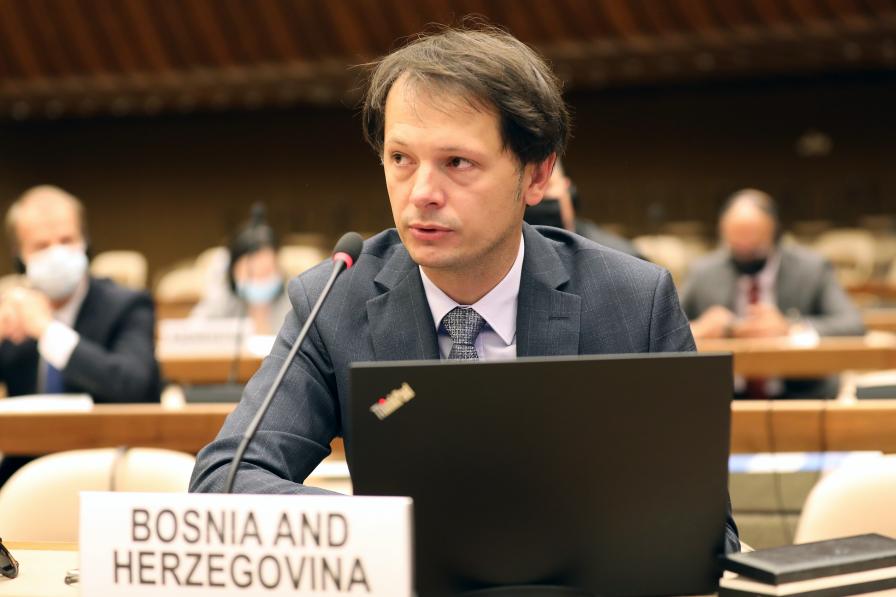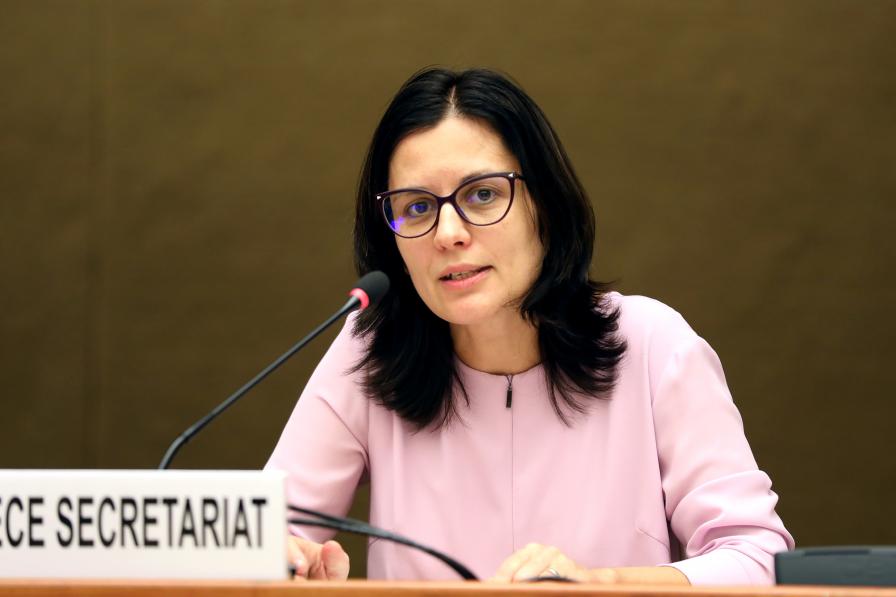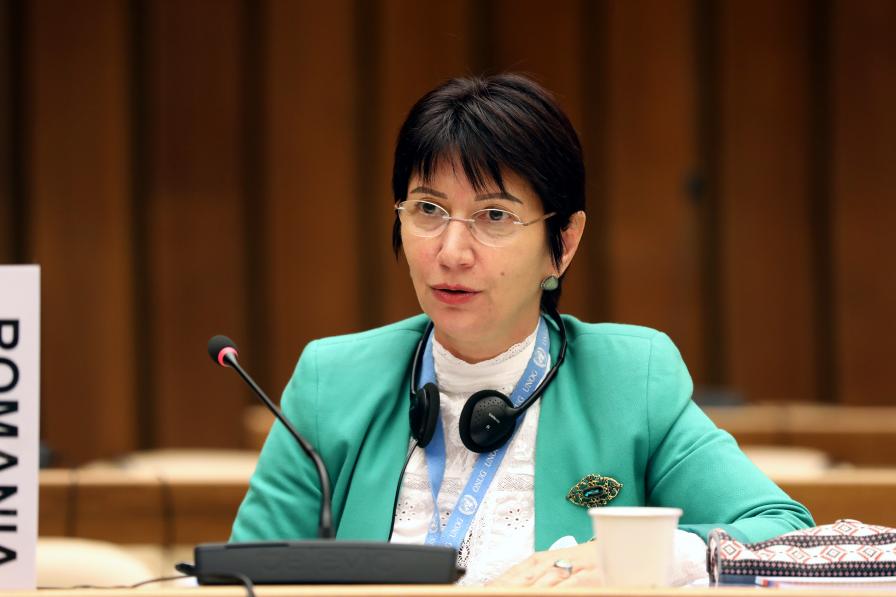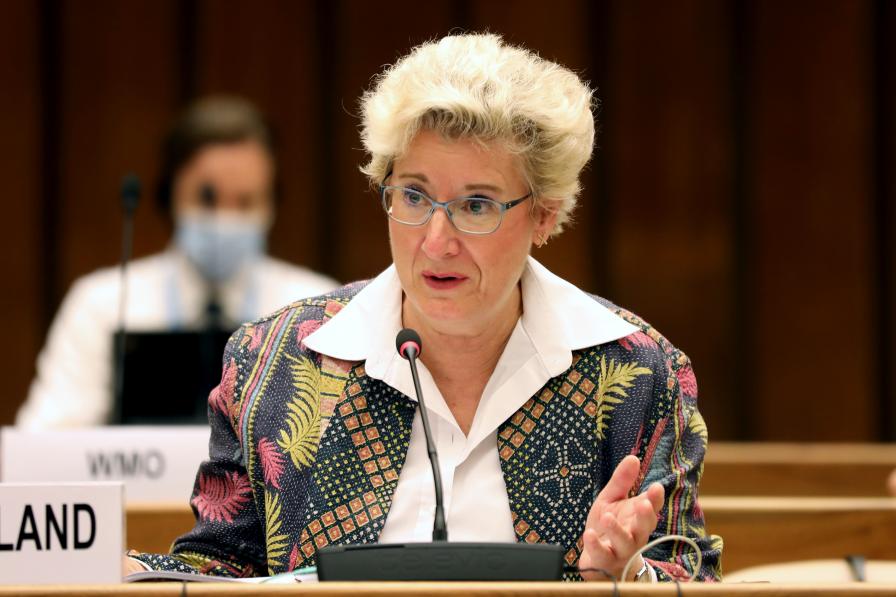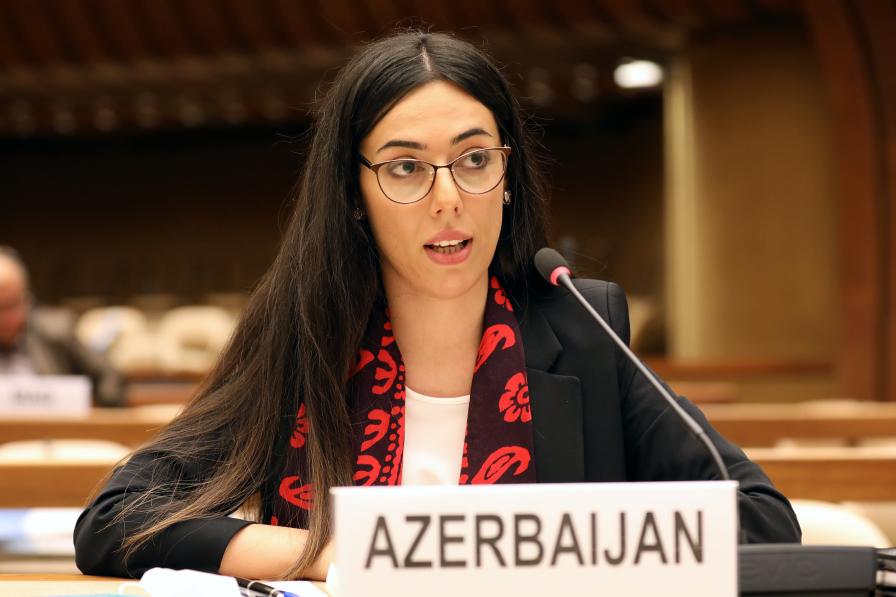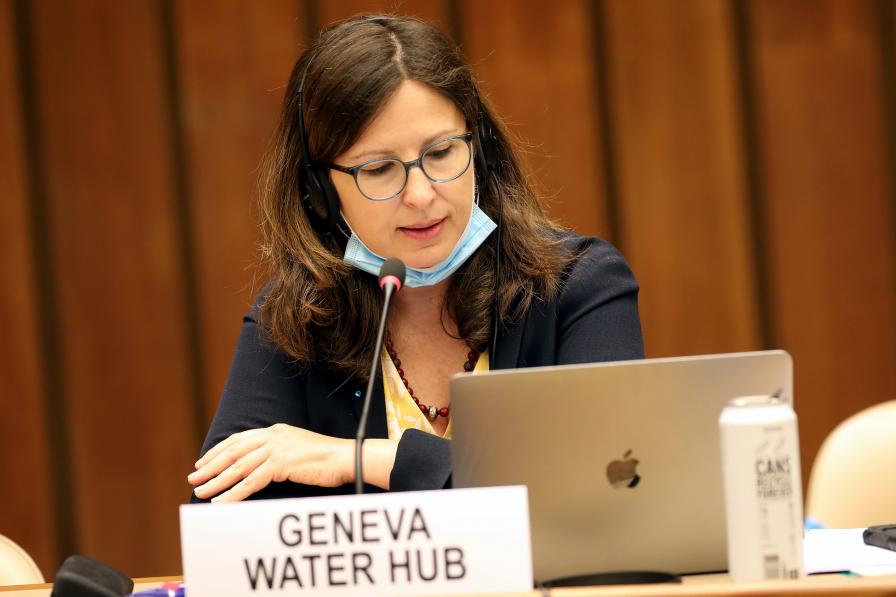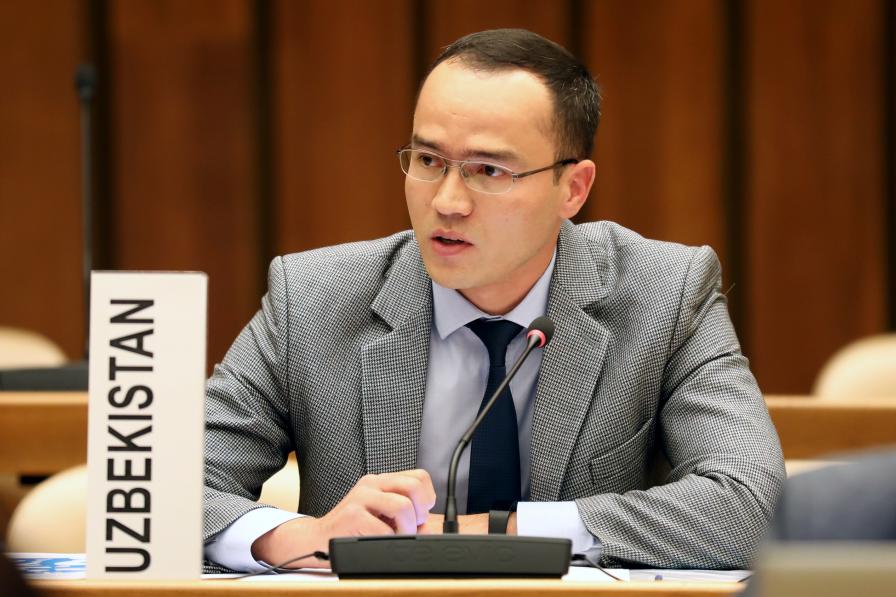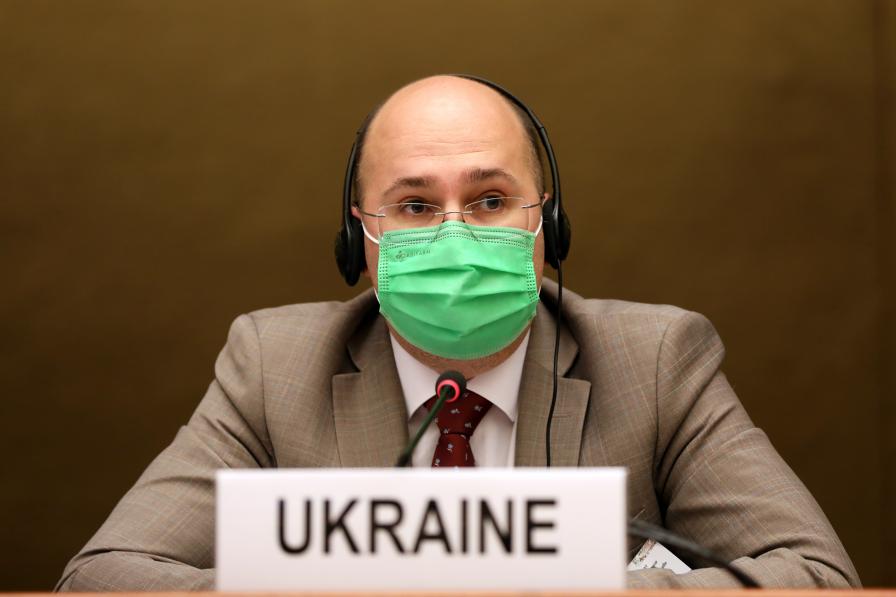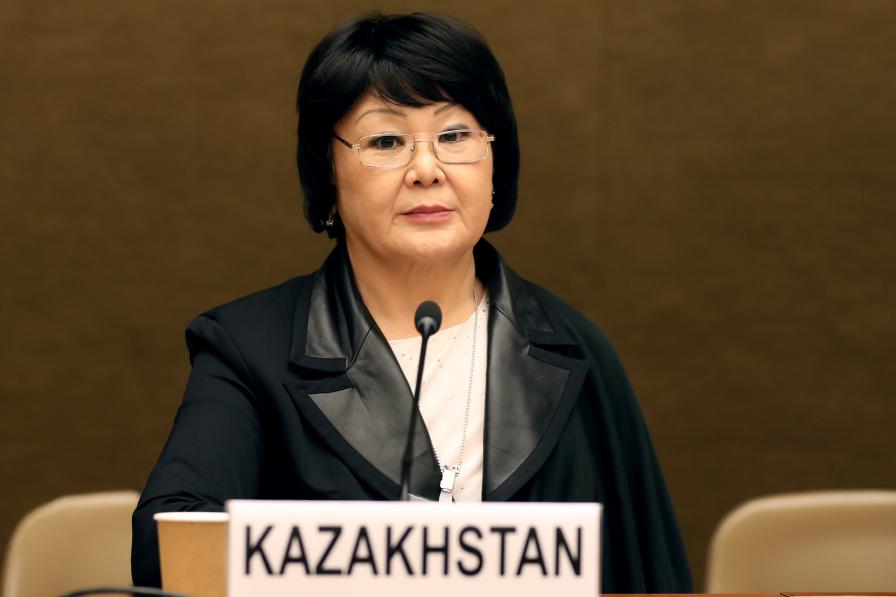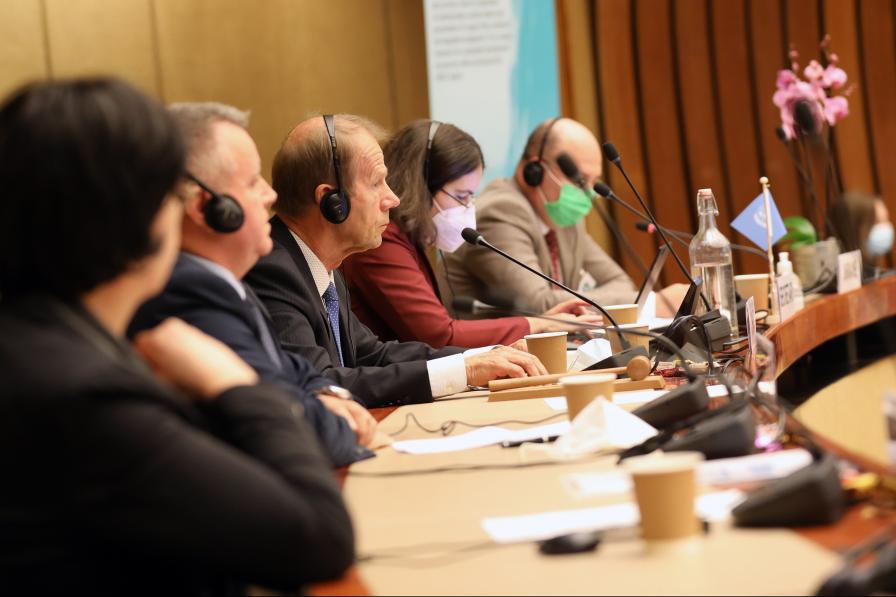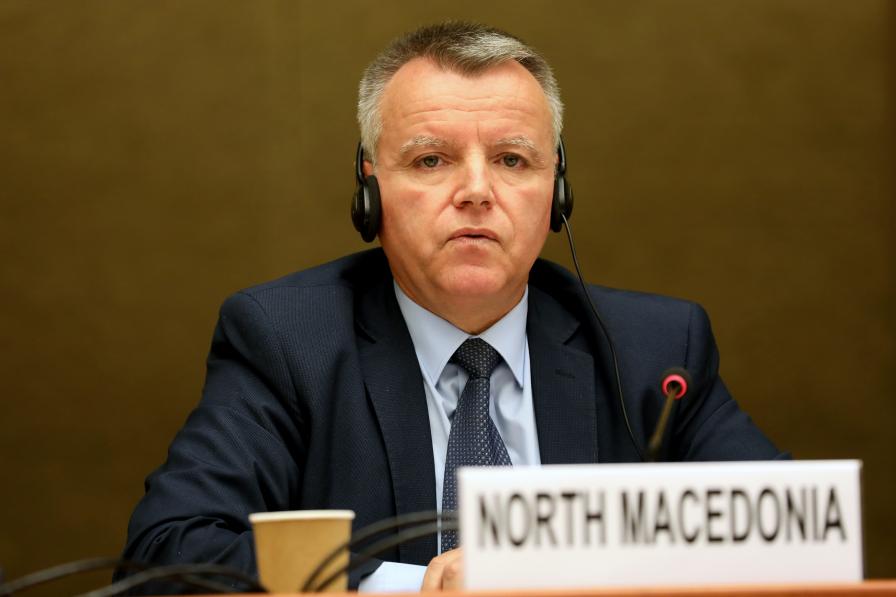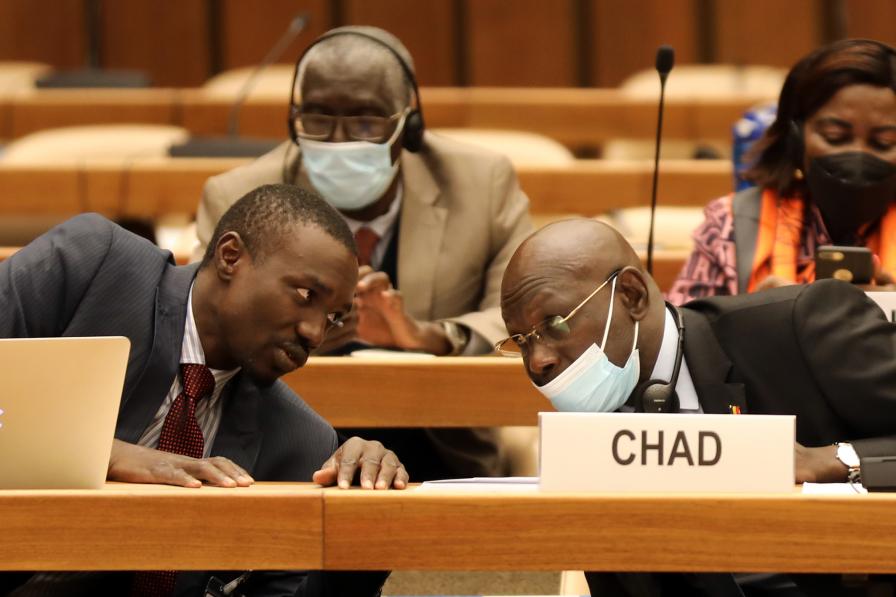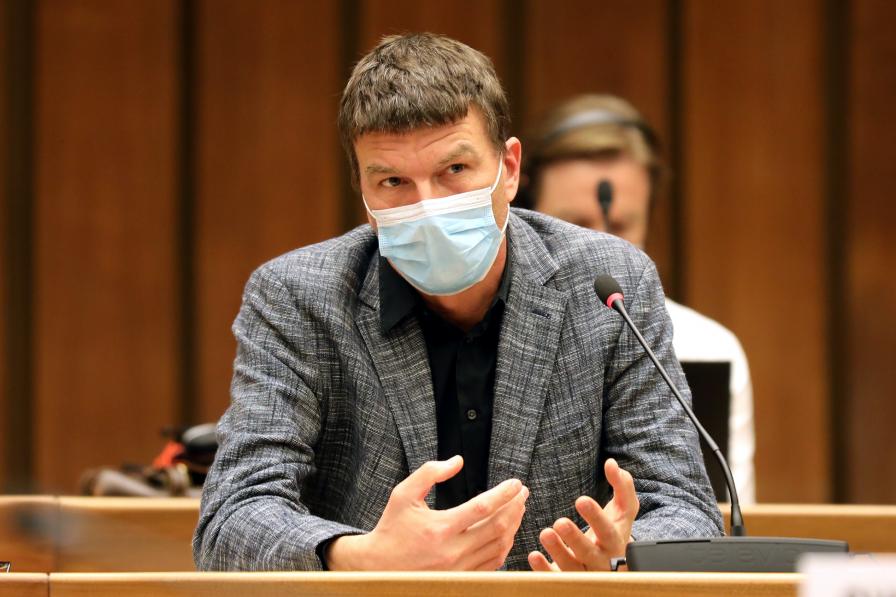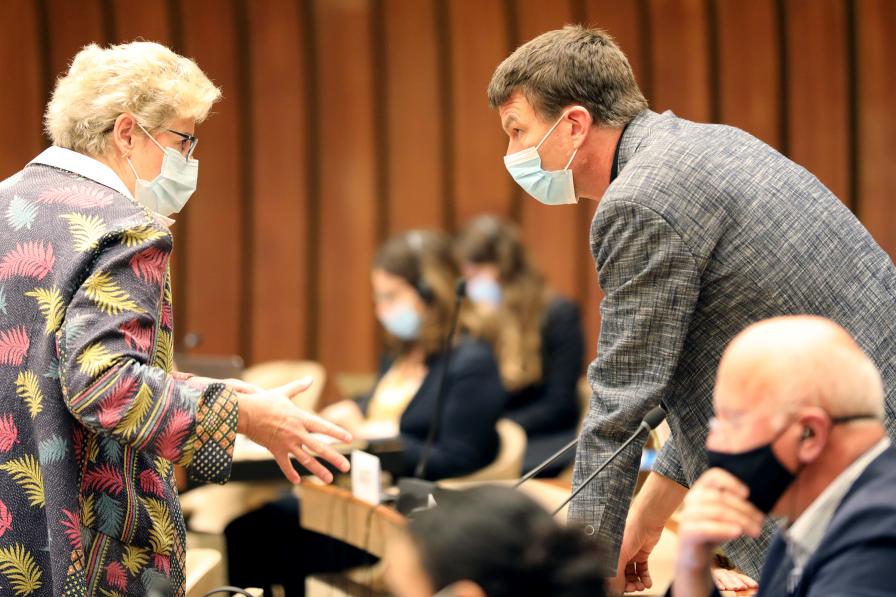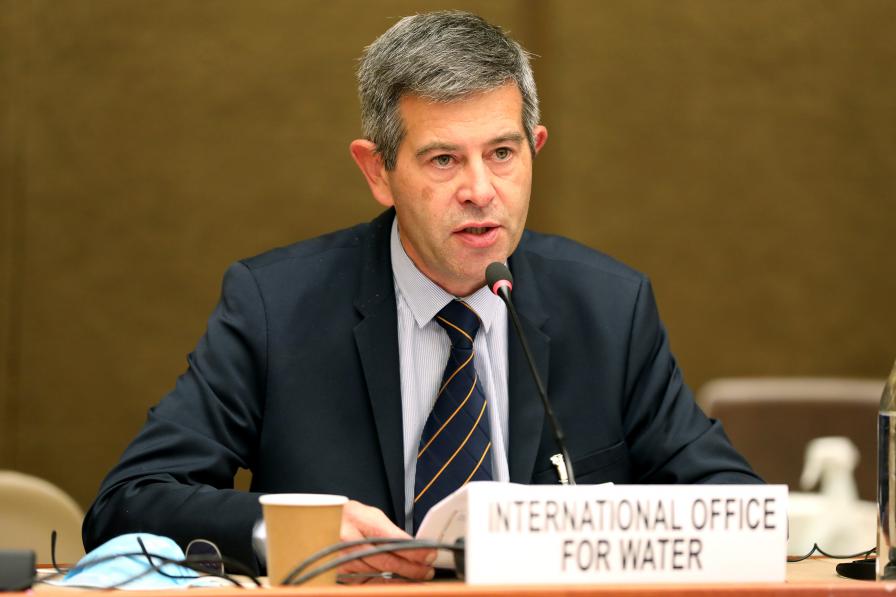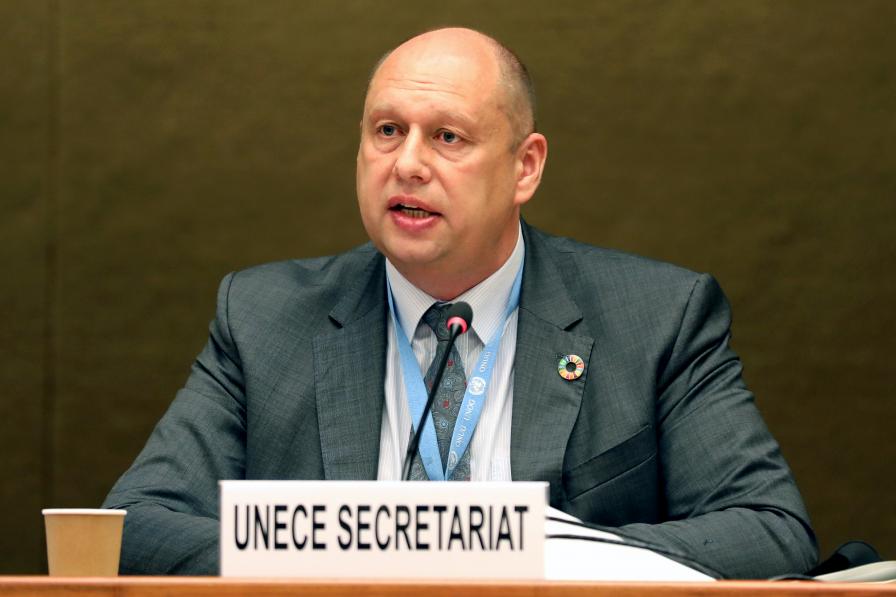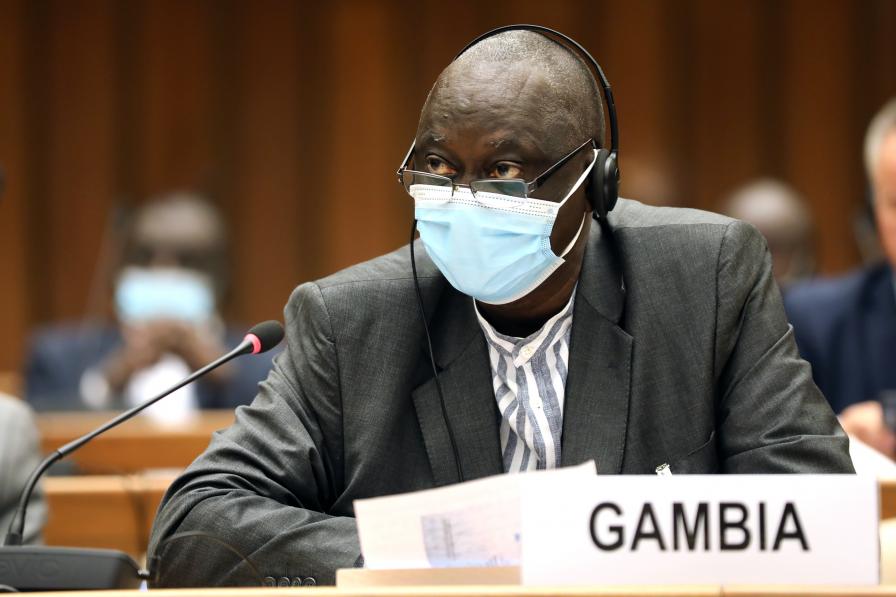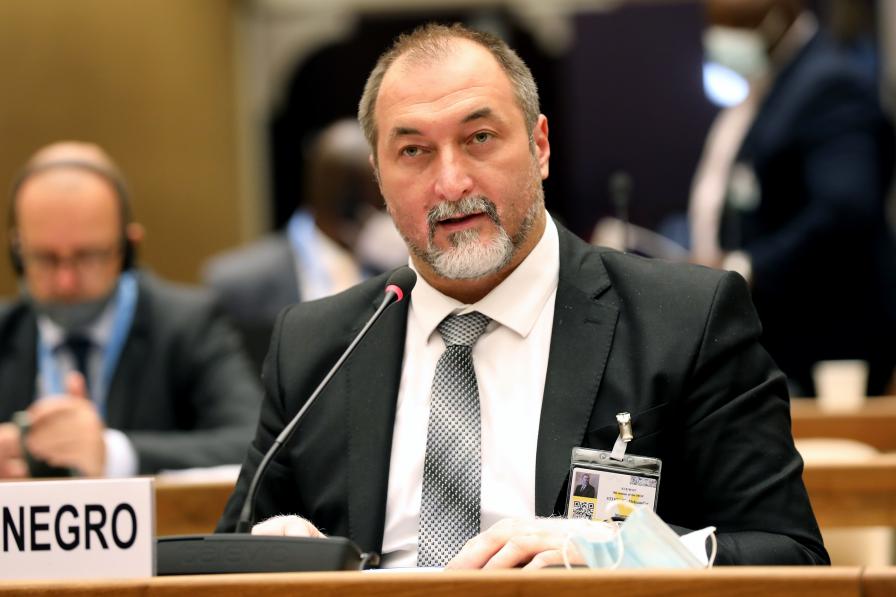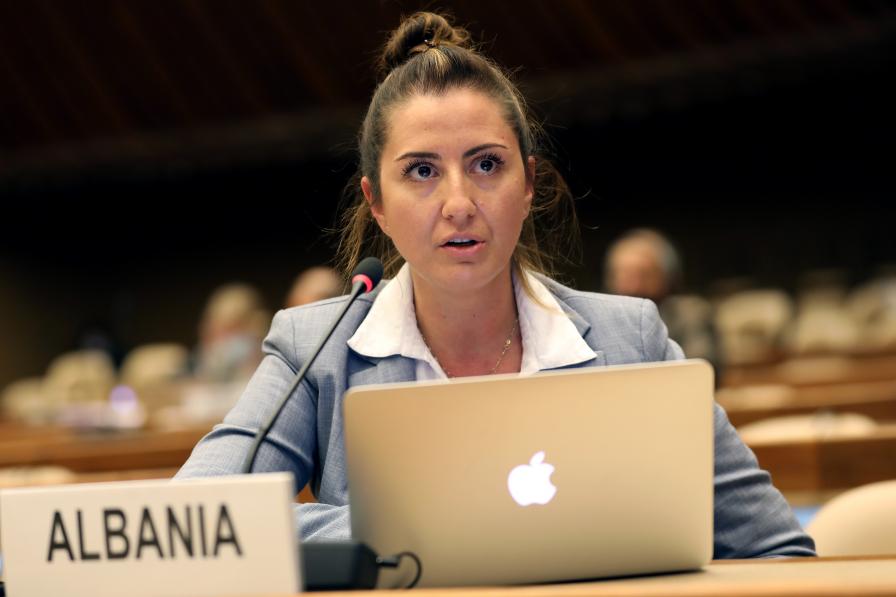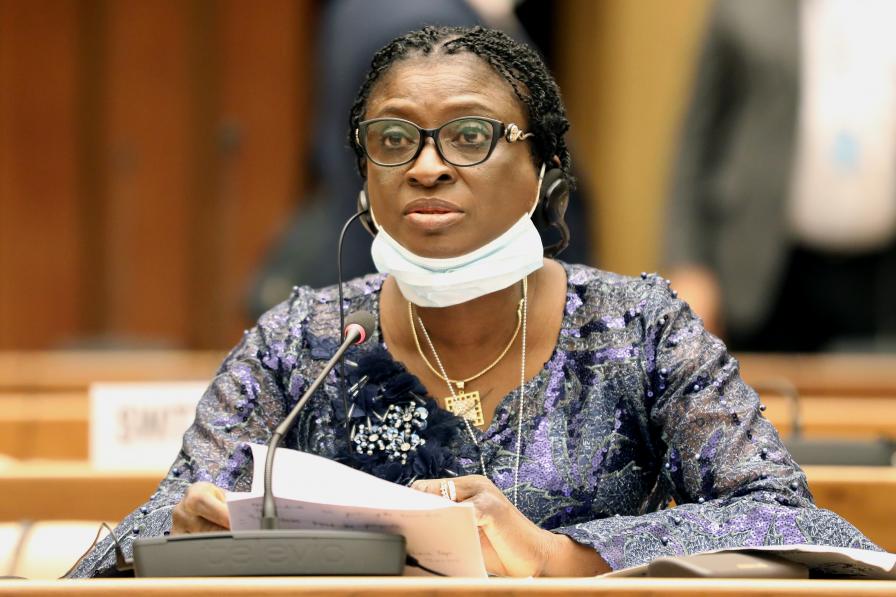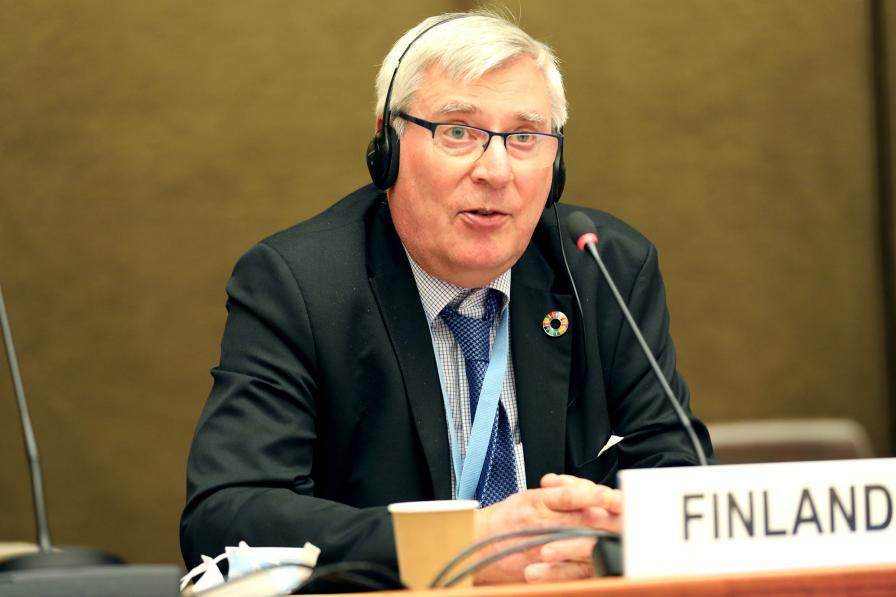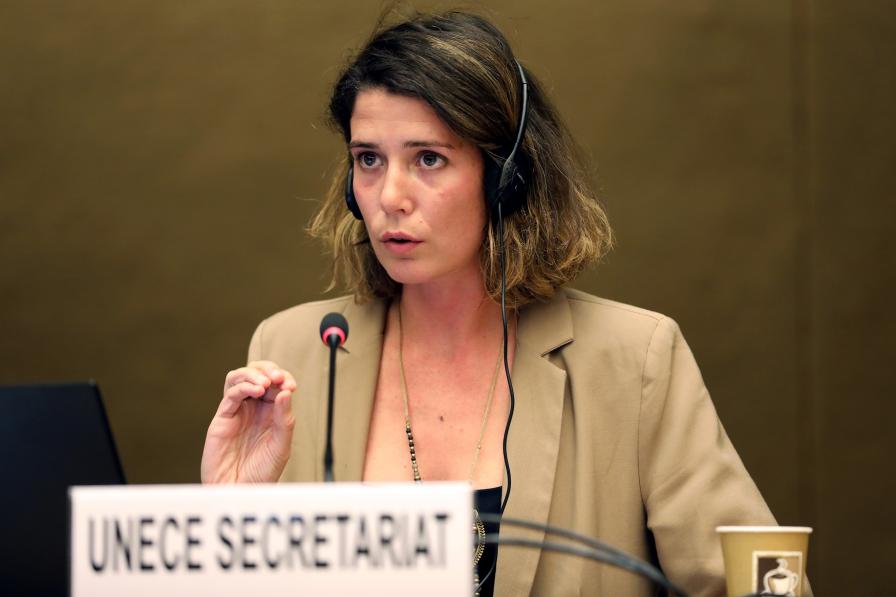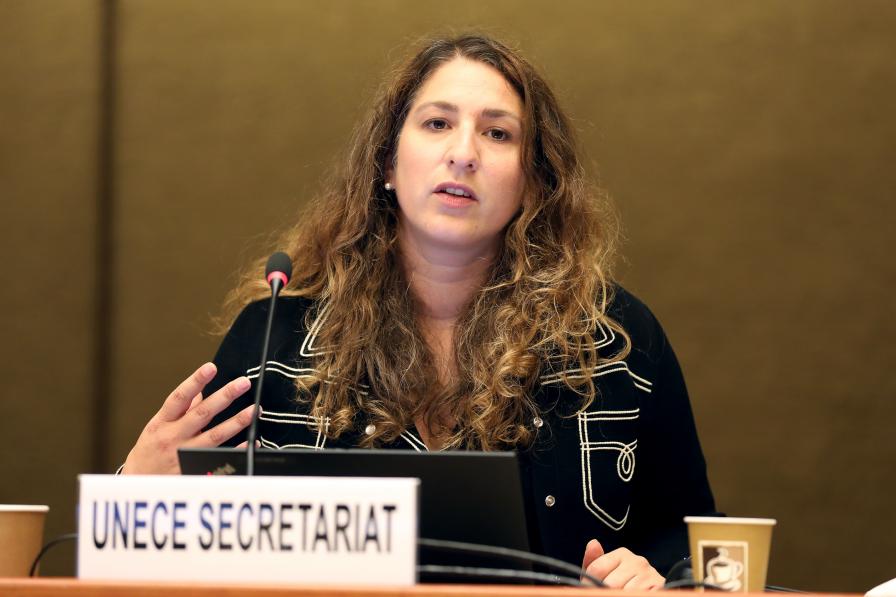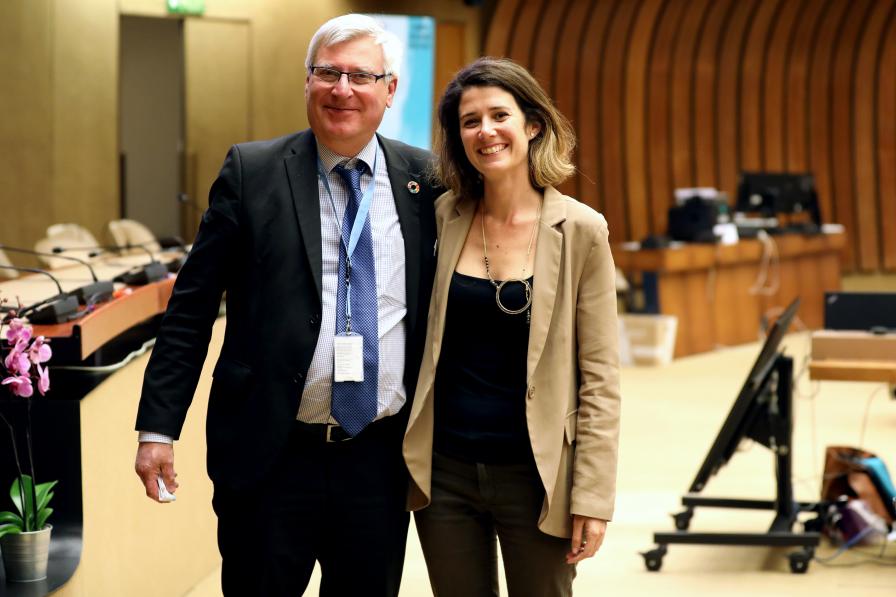On a busy second day of MOP9 to the Water Convention, Parties and observers discussed practical steps to advance transboundary water cooperation.
Highlights of the day included agreement to adopt two innovative guidance documents:
- The practical guide on the development of agreements or other arrangements for transboundary water cooperation; and
- The handbook on water allocation in a transboundary context.
and the launch of three new publications:
The practical guide on the development of agreements aims to help riparian countries design and negotiate transboundary water agreements and arrangements. The guide contains important supporting procedures and examples from treaty practice. Future work includes the development of an online toolkit and the convening of regional and basin workshops to develop agreements and establish joint institutions.
The handbook on water allocation is a tool to assist countries to address one of the biggest challenges in transboundary water cooperation. Transboundary allocation arrangements can work for the benefit of countries, but only if well designed, jointly agreed, adaptable, and effectively implemented. The handbook will help build the capacity needed to address this complex issue.
The publication “Funding and financing of transboundary water cooperation and basin development” notes that: domestic budgetary resources should be the main funding source; private funding and financing can provide additional resources; and innovative financial instruments can potentially offer new opportunities.
The report on solutions and investments in the water-food-energy-ecosystems nexus includes important findings, such as that private funding can have a major role to play in upscaling nexus solutions in transboundary basins. Lessons learned for future work include that: institutional arrangements and processes must be conducive to enhance cross-sectoral cooperation; political will is key for progress; and mutual trust is necessary for cross-sectoral cooperation.
The second report on implementation of the Water Convention reveals several positive achievements, including progress in conclusion of transboundary water agreements and establishment of joint institutions. Areas where implementation support is needed include transboundary aquifers, joint monitoring, climate change adaptation, and resource mobilization.
Other important items under discussion included progress in national processes towards accession in line with the Strategy for the implementation of the Convention at the global level (ECE/MP.WAT/54/Add.2), with several African countries, including Uganda, Tanzania, Namibia, Côte d'Ivoire, The Gambia, Nigeria, and Burkina Faso expressing interest in acceding to the Convention. Iraq expressed hope to soon become the first country in the Middle East to accede to the Convention.
Countries shared experiences in implementing the Convention on the ground through projects and capacity building, with delegates from Ukraine, Kazakhstan, and North Macedonia showcasing projects’ outcomes in the Dniester, Chu-Talas and Drin basins.
Participants further addressed the EU Water Initiative (EUWI) National Policy Dialogues on integrated water resources management, with many countries from Eastern Europe, Caucasus, and Central Asia, presenting the dialogues’ results and offering valuable insights.
The Implementation Committee presented its report, highlighting positive outcomes of the advisory procedure involving Montenegro and Albania, related to the possible transboundary impact of additional small hydropower plants on Cijevna/Cem River in Albania. Montenegro and Albania described steps to implement the Committee’s advice through the establishment of a joint technical working group on monitoring and assessment.
Delegates further addressed reporting on SDG indicator 6.5.2 on transboundary water cooperation, lauding considerable progress as 129 out of 153 countries with transboundary water resources have submitted their reports. Progress is still necessary, since only 24 countries reported that all transboundary waters are covered by operational agreements. Key areas to accelerate progress include: data gaps, particularly for aquifers; scaling up capacity development; strengthening legal frameworks; and leveraging expertise to provide targeted support to countries.
To receive free coverage of global environmental events delivered to your inbox, subscribe to the ENB Update newsletter.
